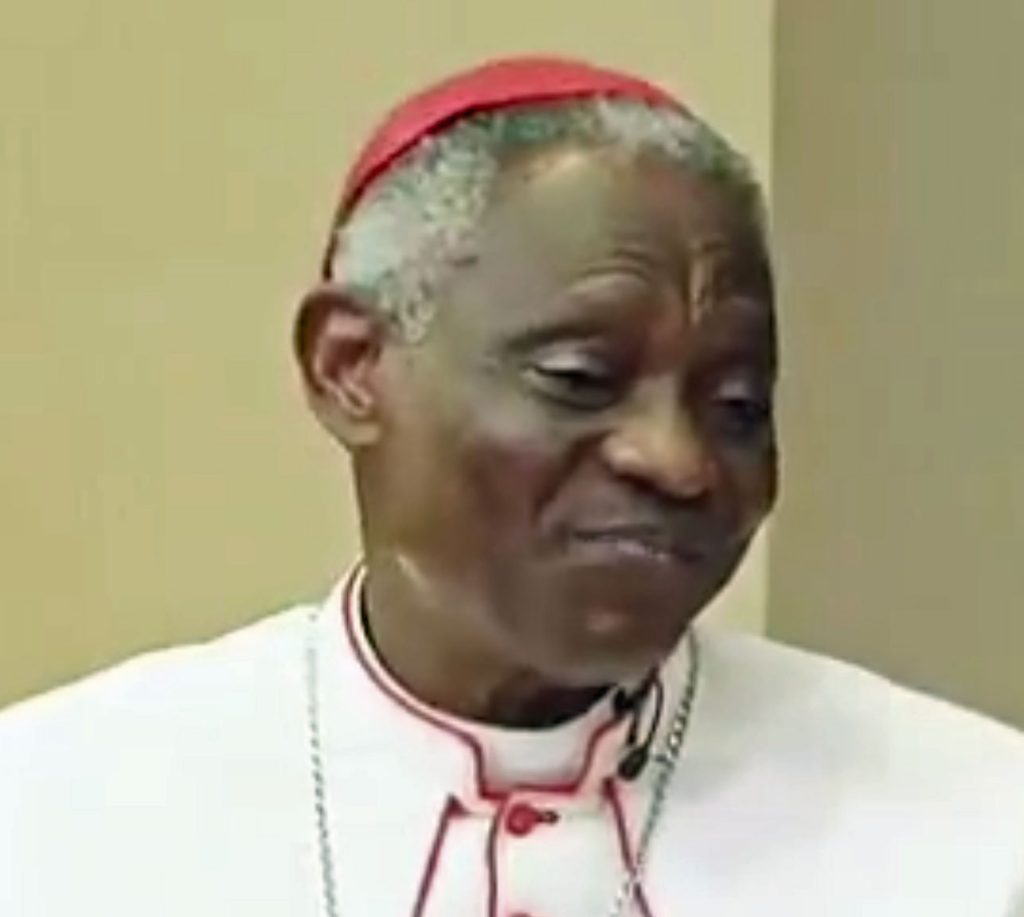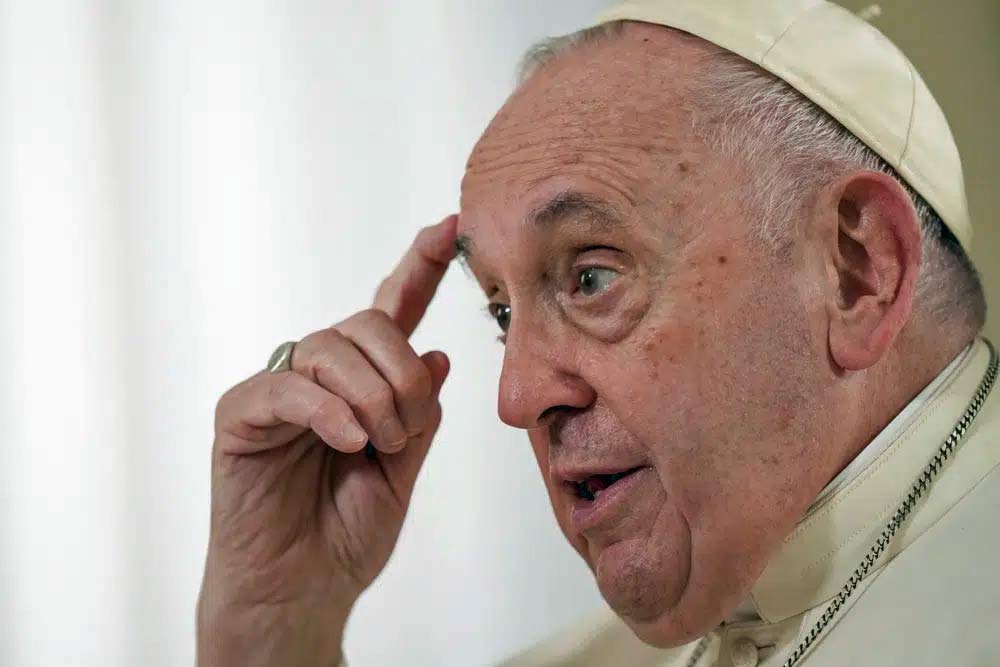Ghana: ‘You criminalize them for what? For just being what they are?’
Colin Stewart is a 45-year journalism veteran living in Southern…
Catholic leader in Ghana rejects key provision of harsh anti-LGBTQ+ bill.

Peter Turkson, a cardinal of the Catholic Church, has distanced himself from a portion of the anti-LGBTQ+ bill that Parliament passed in February and that is awaiting action by Ghana’s Supreme Court. Specifically, he said that laws should only criminalize actions, not people’s identities.
If enacted, the anti-LGBTQ+ bill would impose a three-year prison sentence on people who identify as (“hold out as”) LGBTQ.
The new bill would add the same punishment for people who:
- Participate in gender-reassignment surgery;
- Enter into a same-sex marriage; or
- Attend a same-sex wedding.
It would also impose prison sentences of up to 10 years on people who:
- “Promote” LGBTQ activity.
It would not modify the section of Ghana’s current law that provides a three-year prison sentence for same-sex intimacy.
His comments came in a television interview on TV3’s *Hot Issues* show on Oct. 13.
On X/Twitter, the LGBTQ+ rights advocacy group Rightify Ghana described his comments about “the complexities surrounding homosexuality, the church’s stance, and the country’s controversial anti-LGBTQ+ Bill”:
“You Criminalize Them for What?” – Cardinal Turkson Expresses Shock Over Harsh Punishments in Ghana’s Anti-LGBTQ+ Bill
“You criminalize them for what? For just being what they are?” – he told TV3 Ghana that homosexuality is not alien to our culture
Cardinal Peter Turkson, a leading figure in the Catholic Church, has called for a more nuanced and inclusive approach to the LGBTQ+ debate in Ghana. In an interview on TV3’s *Hot Issues* on October 13, 2024, Cardinal Turkson spoke on the complexities surrounding homosexuality, the church’s stance, and the country’s controversial anti-LGBTQ+ Bill.
Addressing the question of whether the Catholic Church is conflicted about its position on homosexuality, Cardinal Turkson clarified the difference between natural tendencies and actions. “Homosexuality is a tendency which can lead to action. As a tendency, nobody can accuse or blame you for being what you are,” he said. However, he noted that actions stemming from these tendencies can become an issue when they clash with societal or legal norms. “What you do, your action, can be reprehensible to a country or state because it goes against its norms or laws.”
When asked about the proposed anti-LGBTQ+ Bill in Ghana, which seeks to criminalize a wide range of LGBTQ+ activities and expressions, Cardinal Turkson stressed the importance of recognizing Ghana’s diverse population. “Ghana is not all Christian, Ghana is not all Muslim. Ghanaians are different,” he said, arguing that it would be unfair to impose the views of one group on the entire nation. He emphasized the need for any legislation to respect the beliefs of various communities.

He reaffirmed the position of the Ghana Catholic Bishops’ Conference (GCBC), stating that their views on homosexuality align with Pope Francis. While the GCBC has opposed the blessing of same-sex couples, Turkson clarified that the Pope supports the blessing of individuals, not unions. “If you bless a couple, it’s tantamount to recognizing their marriage, and then their sexual relations. That was the protest,” he explained. Blessing a union, he said, would imply condoning same-sex relationships.
Reflecting on Ghana’s cultural history, Cardinal Turkson reiterated that homosexuality is not entirely foreign to the country. He referred to the traditional term ‘benyin besia’ (effeminate man) as an example of how such identities have long existed in Ghanaian society. [Editor’s note: For more information, see the article “21 varieties of traditional African homosexuality”.]
He argued that criminalizing these identities is unjust. “You criminalize them for what? For just being what they are?” he asked, emphasizing that criminalisation should be reserved for actions, not identities.
The Cardinal also expressed shock at some of the harsh provisions in the anti-LGBTQ+ Bill, …particularly those that propose imprisonment for expressions such as cross-dressing. “Who controls how one is born? And if one is born this way, how does it in itself constitute a crime?” he questioned, underscoring that crimes should be based on actions that are deemed harmful, not on who someone is.
In addition, Cardinal Turkson criticized the practice of tying LGBTQ+ rights to donor support from international partners. He described this as undue pressure on countries like Ghana, arguing that foreign aid should not dictate Ghana’s stance on LGBTQ+ issues. “How western countries feel about LGBTQ+ should not be how Ghanaians feel about it because some part of our budget depends on them,” he said.
In conclusion, Cardinal Turkson advocated for a balanced approach to the LGBTQ+ issue in Ghana. He called for respect for diverse views, urging against the criminalization of identity while maintaining that actions, not inclinations, should be the focus of legal scrutiny.




